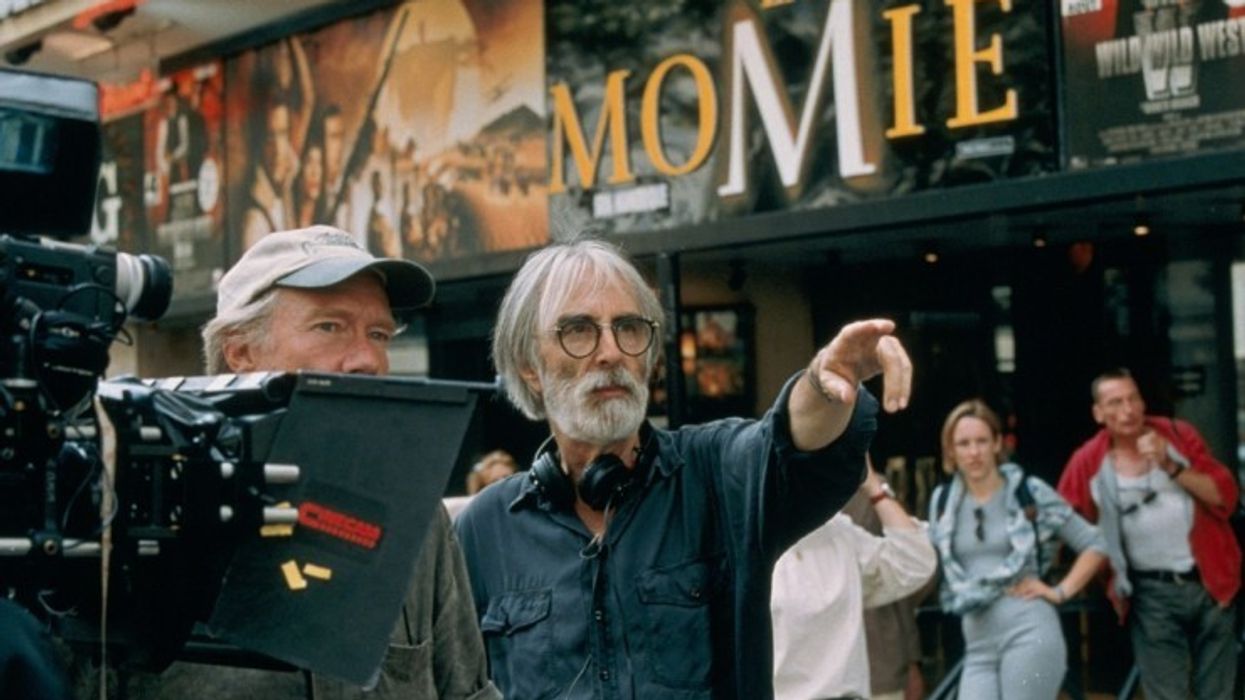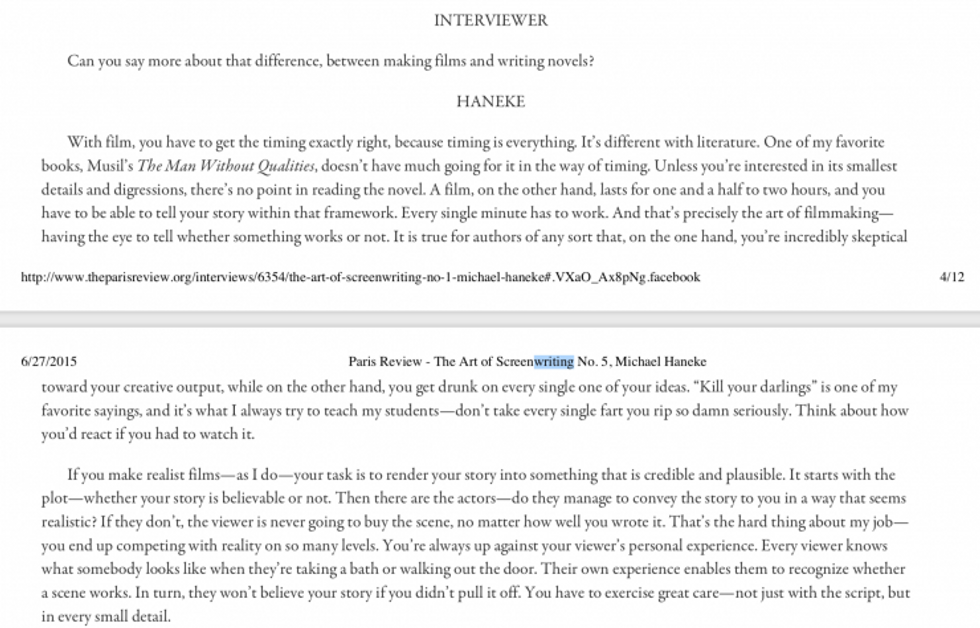Michael Haneke Reveals How You Can Write Great Scripts
In a recent interview with The Paris Review, filmmaker Michael Haneke shared his views on what makes for good storytelling in screenplays.

Michael Haneke did not direct his first film until he was 46 years old.
Since then, he's steeped himself in the "realist" movement of filmmaking. Focusing on stories he can use to evoke feelings of real life. His work has been critically acclaimed and even transcended different genres. Haneke recently sat down with The Paris Review to talk about his work and his approach to writing.
One of the coolest things about Haneke is his desire to cover the real world and to tell stories that come solely from himself. This means he's taken himself out of the commercial filmmaking game and focused only on artistic expression.
It also means his writing has to come first, as he is the originator of all his ideas.
We know that Hollywood productions often represent the meeting of art, commerce, and collaboration. So, it's wild for me to read about someone who basically rejects most of that, only taking in the artistic merits of the endeavor and relying completely on being an auteur.
While a lot of writers I know allow collaboration to bring out the best in them, I like his version, too. Complete control. Live and die by your own talent -- though this is seldom afforded within the traditional Hollywood landscape. A place Haneke doesn't work within often -- or at all -- anymore.
It's cool to see even the master auteurs use post-it notes and prep work. It's important to outline and get your ideas out so you can see them. Making a beat sheet with notes can help you see the whole thing laid out and discover if there's anything missing.
The other liberating thing is that he tears up most of his notes and ideas. Writing is having the courage to toss ideas away and believing in yourself to come up with better ones. Challenge yourself to come up with the best ideas and best fixes.
Sometimes, the best part about writing is the ability to research and learn. While Haneke thinks that means regurgitation, some writers like the opportunity to empathize and put those feelings into their stories and original situations. It is useful to pull from your own life.
Sometimes, writers can put the things they and others are going through -- or know first hand -- into other scenarios to make genre stories feel more real and identifiable. Haneke's point of view and his goal to strive for realism is admirable. But strict adherence to that approach limits where your story can go.
Regardless of how one gets there, Haneke encourages filmmakers to find the conflict that fuels good drama in your own surroundings:
I love the idea that "Everything has a story" and that he judges each story with merit. Still, as anyone will tell you, the script is the blueprint for the final product.
You can have a great script that leads to a bad movie, and get a great movie made from a "just okay" script.
Here is how how Haneke differentiates novels from scripts:
The filmmaker nails something profound here. We only have a few hours to talk about the emotional truth of your movie. That means getting to the point and not being afraid to shave off time when needed to focus on the important bits.
Details matter.
What's next? Learn how Rick & Morty handle opening scenes!
Rick & Morty scripts are inventive, imaginative, and incredible to read. Download the "Meeseeks Box" episode of the show and learn how to set up key moments in your story.
Click for more!

















